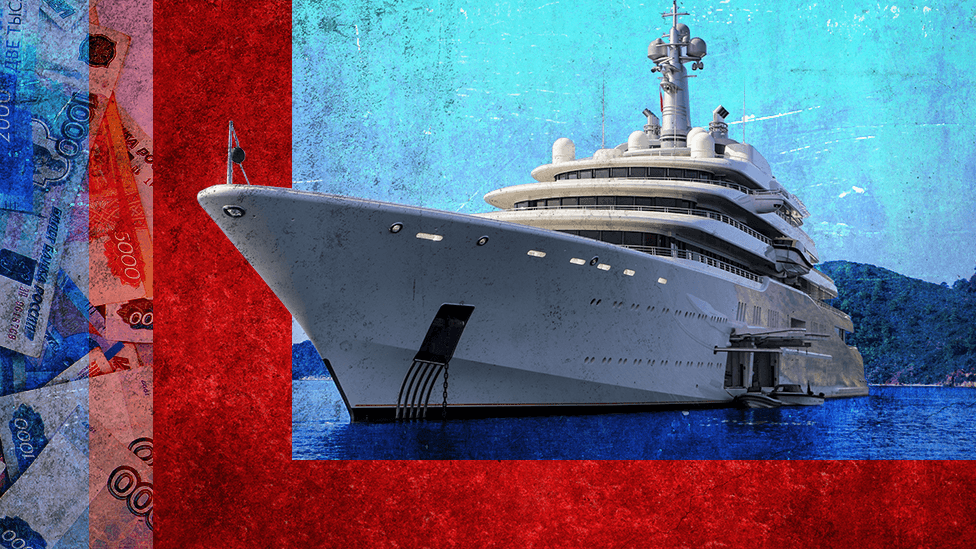London mayor questions police response at oligarch mansion protest
- Published
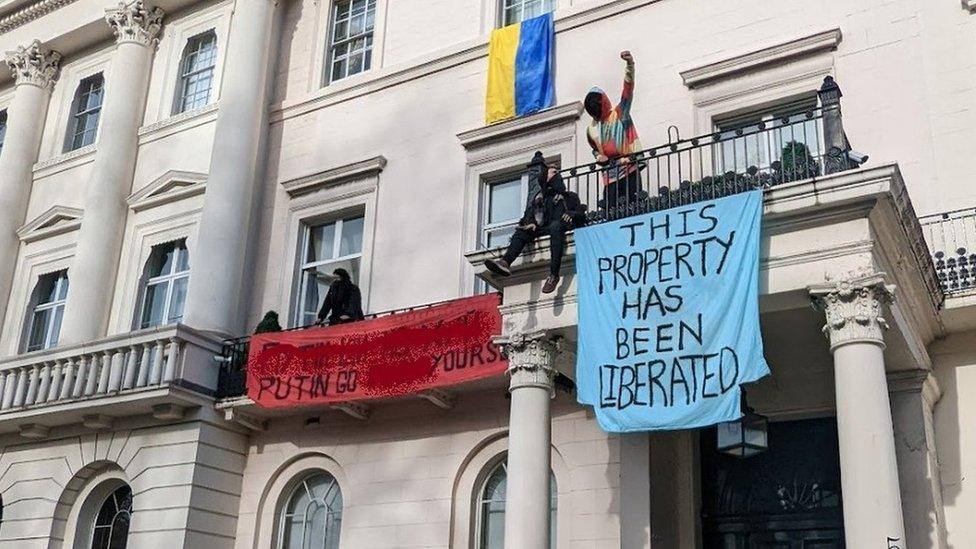
Protesters draped Ukrainian flags over the balcony of the property
London's mayor has said it is unclear why police intervened when protesters occupied a mansion linked to a Russian sanctioned ally of Vladimir Putin.
The protesters occupied the balcony of 5 Belgrave Square, in central London, on Monday.
They said they were reclaiming the property, belonging to Russian oligarch Oleg Deripaska, for Ukrainian refugees.
After Sadiq Khan questioned if the response was "proportionate", the Met said squatting was a criminal offence.
Four people who came down from the balcony were arrested on suspicion of squatting, the Met Police said, while a further four arrests for trespass were made when protesters tried to climb onto the back of the building via the Romanian embassy.
Reports of a break-in were first made to police at about 01:00 GMT on Monday and a heavy police presence built up throughout the day, ending up with about 10 riot vans parked up and the street cordoned off.
Police used a JCB telehandler to try to talk the group down, and 20 officers in riot gear used a drill to break open the front door and enter the house, but protesters stayed on the balcony until about 20:00 GMT.
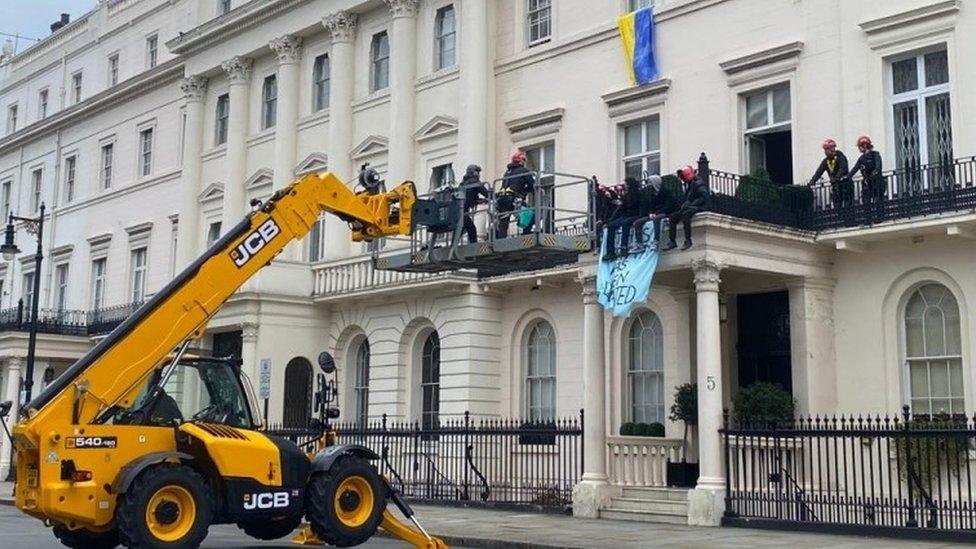
Police used a JCB crane to gain access to the mansion
Speaking to the Andrew Marr show on LBC, Mr Khan said the response did "raise questions".
"I'm unclear what the police were responding to because we know no-one's living there," he said.
"But I'm not sure if there were concerns about any crimes being done to any neighbouring properties, so those are the questions."
He added he was likely to bring up the way officers responded with the Metropolitan Police hierarchy.
When asked whether he would speak to outgoing Met Commissioner Dame Cressida Dick about the incident, he replied: "Or the number two, but someone in the police service, yes."
A Met Police spokesman said as the protest was initially reported as a break-in this "led to an immediate response and would do so anywhere in London".
He said: "Once at the property officers were told the intrusion was for the purposes of a protest. However, squatting in a residential property is a criminal offence.
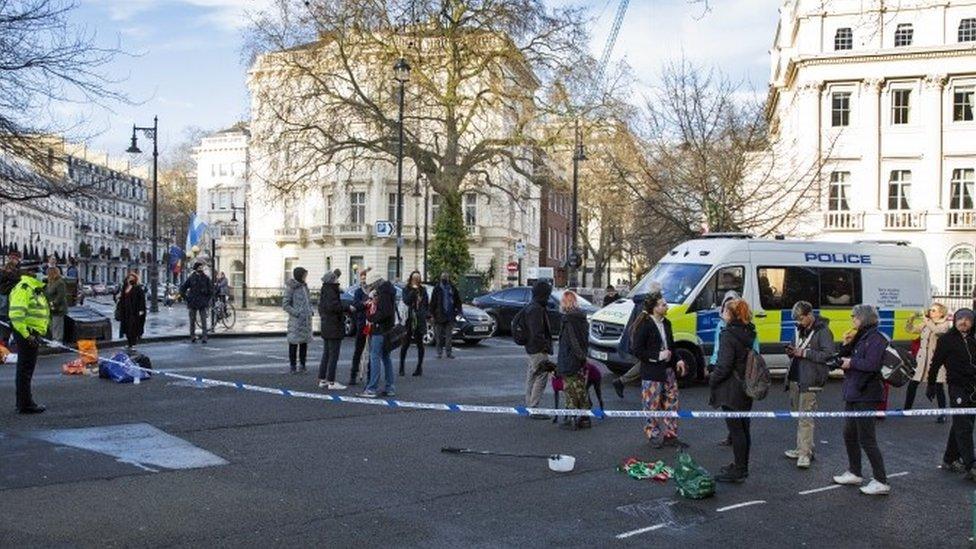
The street was cordoned off during the protest
"In addition, officers faced difficult decisions as they had not independently verified what was taking place inside the property, who was present and whether there were other risks.
"Over the following hours we deployed the resources necessary to resolve the situation swiftly but safely, both for our officers and the protesters."
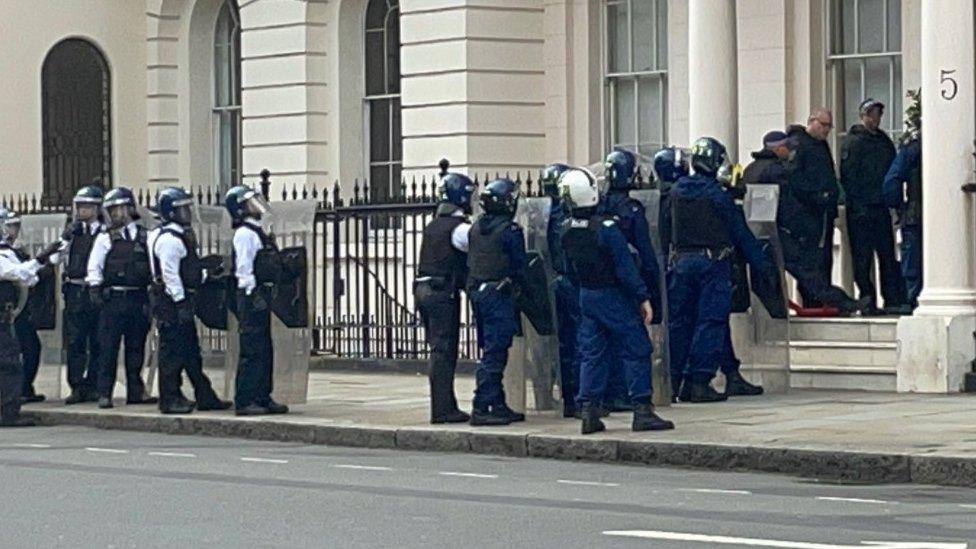
Met Police officers dressed in riot gear attended
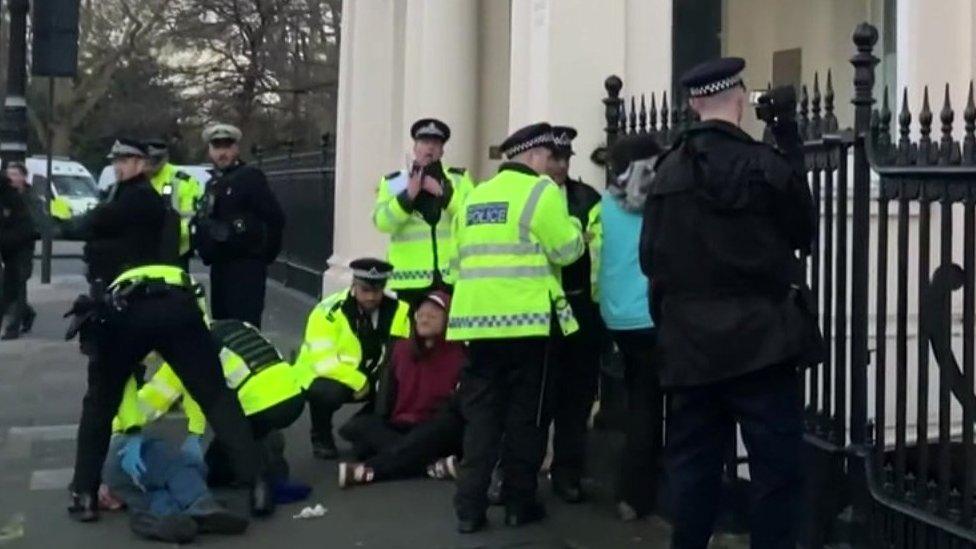
Eight people were arrested
The Labour mayor reiterated his frustration with the time taken for the UK government to "seize" property in the capital owned by people with links to Russia's leader.
"We know that there are many properties owned in London by people close to Putin," he added.
"One of my concerns is, we've had a number of weeks now to seize those homes, to allow them to be used by refugees. They haven't."
He added: "I don't condone the actions of the squatters but they've decided to take the law into their own hands."
The protesters called themselves the London Mahknovists, after Nestor Makhno, who revolted against the Russian White Army in 1918-21.
Mr Deripaska was one of seven oligarchs, including Chelsea owner Roman Abramovich, added to the UK sanctions list last week in reaction to Russia's invasion of Ukraine.
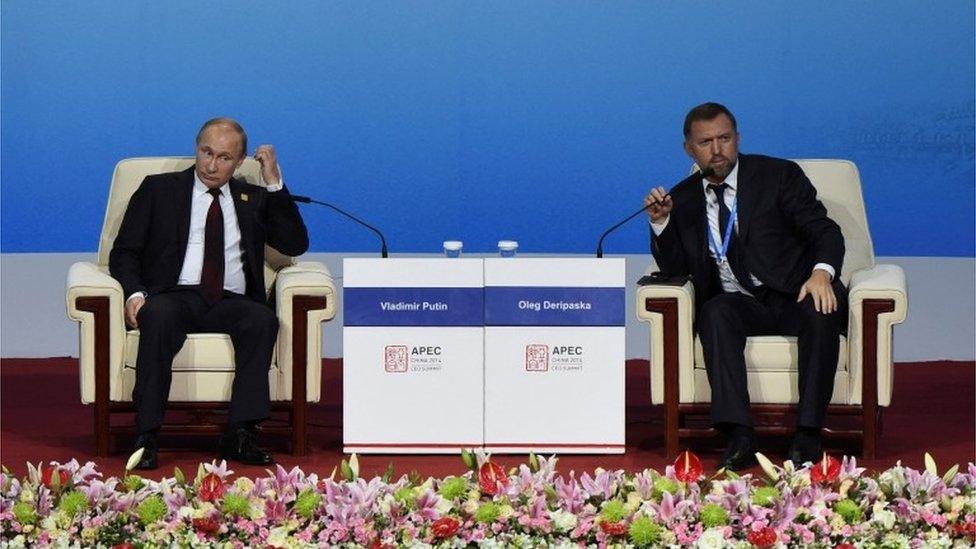
Oleg Deripaska (right) was one of seven oligarchs sanctioned by the UK over his ties to Vladimir Putin
His wealth is estimated to be £2.3bn and he has a multimillion-pound property portfolio in the UK, which includes the house at 5 Belgrave Square, according to a 2007 High Court judgement.
The seven-bedroom house, in one of London's most expensive neighbourhoods, also has a home cinema, a gym and a Turkish steam bath.
Records indicate it has not changed hands since and is owned by an offshore British Virgin Islands company, Ravellot Limited.

Follow BBC London on Facebook, external, Twitter , externaland Instagram, external. Send your story ideas to hellobbclondon@bbc.co.uk, external
Related topics
- Published14 March 2022
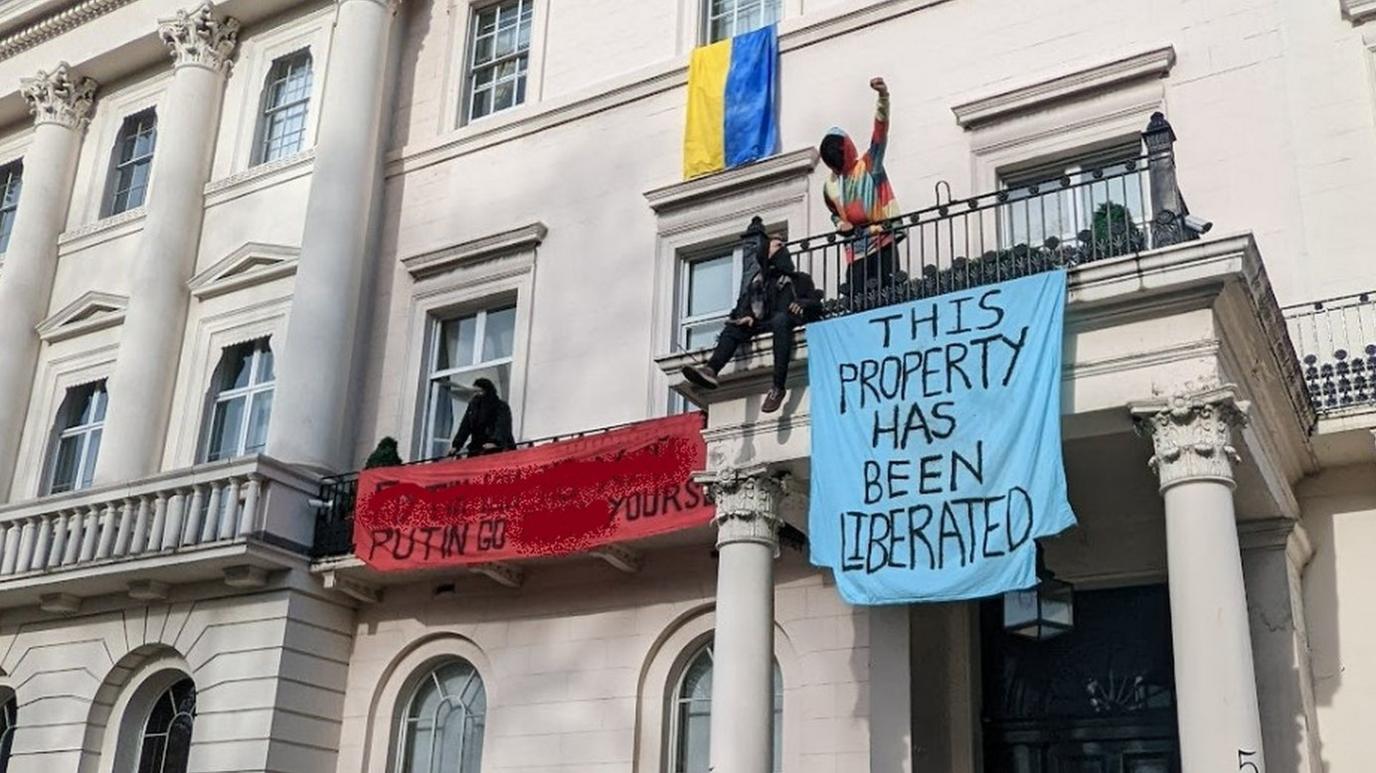
- Published10 March 2022
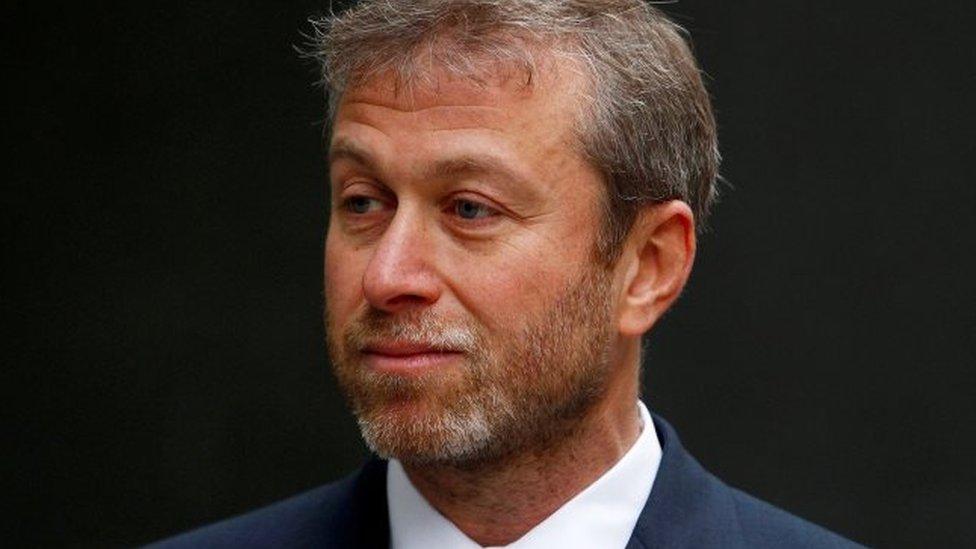
- Published15 March 2022
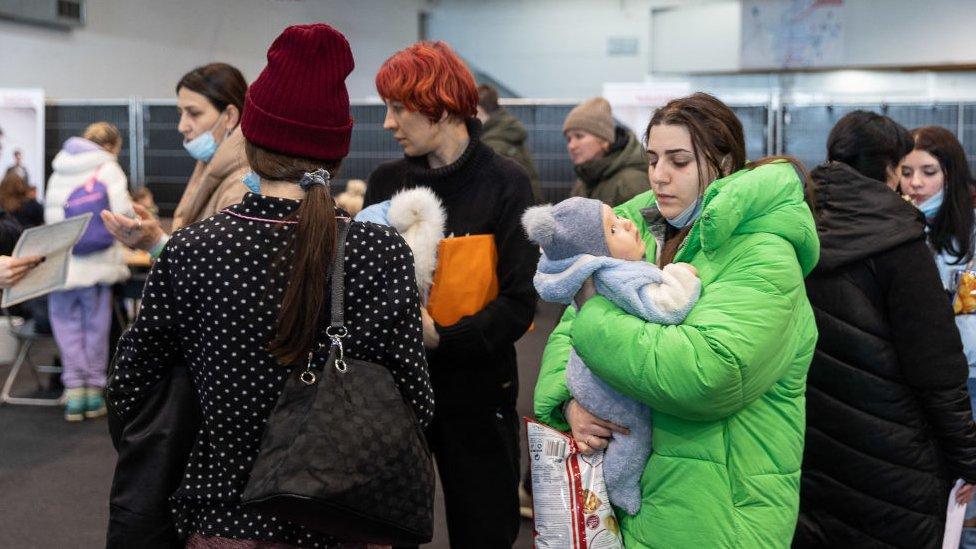
- Published15 March 2022
